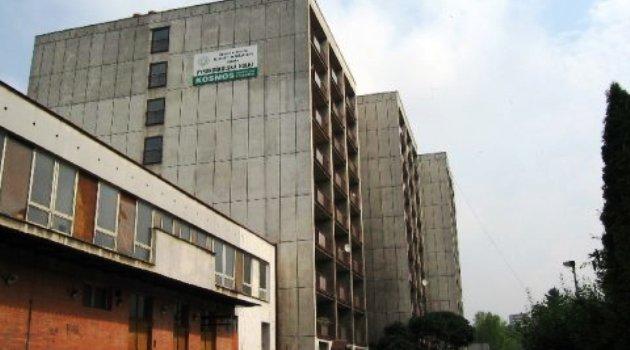Czech Labor and Social Affairs Ministry's amendment counts on reducing benefits for residential hotel tenants

The Czech Labor Ministry is preparing to reduce the amount of housing benefits disbursed to people living in residential hotels. The amount of the benefit should be calculated based on lower base rates than have been used to date.
Currently the calculation is based on at least 90 % of the state-established cost for housing, but the amendment will reduce that to a maximum of 80 % of that cost. What’s more, tenants in residential hotels will only be able to receive this benefit if they document that they are unable to access regular rental housing in their city or municipality and if they fulfill other conditions.
The changes are part of a proposed amendment to the law on aid to those in material distress published by the Czech Government on its website. According to data from the Labor Ministry, around 13 000 housing benefits have recently been disbursed to residential hotels for their tenants.
Roughly 10 210 of those were for individuals, 1 640 covered two-member households, 630 covered three-member households, and 820 covered families with four or more members. Last December, Labor Offices throughout the country disbursed 73 900 housing benefits of different kinds total.
"It is indisputable that the intention of the proposed measures is to achieve a state of affairs in which families or individuals are able to find appropriate standard housing and maintain it, not to deprive persons of housing benefits," the Labor Ministry said in its report on the draft bill. In the past, the country’s "trafficking in poverty" and overpriced residential hotels with poor conditions have been repeatedly criticized.
The state housing benefit is supposed to ensure that a family or individual has enough money to live on after paying the costs of rent and utilities. According to the state-established cost of housing, the base rate for the benefit in Prague would vary, depending on the number of persons housed, between CZK 7 731 to CZK 18 947 monthly, while in the smallest towns and villages it would range from CZK 4 811 to CZK 12 648.
People living in residential hotels will now be granted 80 % of that price range instead of 90 %. In the capital, the normative amount to be paid for an individual living in a residential hotel would be CZK 6 185, roughly CZK 1 546 lower than it is today.
Four-member or larger families in residential hotels would receive a benefit of CZK 15 158, a normative of about CZK 3 789 lower than they receive today. In a town of 10 000 or less, a four-member family in a residential hotel might receive a maximum benefit of CZK 10 118 instead of today’s CZK 12 648.
The draft amendment also counts on setting a ceiling for the benefits covering utilities according to the customary costs in a given location. The amendment was originally drafted to remove problematic provisions from the law on aid to those in material distress about the consent of municipalities to the disbursal of housing benefits.
That provision also got into the rules as an amendment and has been in effect since last spring. In practice, however, it has caused difficulties and might even be unconstitutional.
The Labor Ministry has since added adjustments to the amount of the benefit and other measures to its regulations. People in residential hotels should receive their benefits if their cases are "worthy of special concern."
Such tenants will have to document their ties to the city or municipality where they are living. They will have to demonstrate that they work there, have a family there, or that their children attend school there.
Local authorities should award residential hotel tenants housing benefits if they prove unable to access regular housing in their location. Local bureaucrats should elaborate, together with the residential hotel tenants, a "motivational plan" regarding their housing.
That plan should include measures and a schedule for finding a rental apartment. Should the benefit recipient fail to fulfill the tasks required, he or she could lose the state money.
The ministry first proposed this amendment last year. Originally it proposed reducing the residential hotel costs to be covered to 70 % of the normative from the current 90 %.
That plan was criticized by both activists and experts. According to the background materials accompanying the amendment, serious exceptions to the planned changes were expressed by the Office of the Human Rights Minister, the Public Defender of Rights, the Justice Ministry and Regional Authorities.
Czech Human Rights Minister Jiří Dienstbier (Czech Social Democratic Party – ČSSD) basically disagrees, for example, with the notion that an applicant’s tie to a community should be taken into account when deciding whether to award benefits or not. Aid to those in material distress should, in his view, be awarded irrespective of whether one lives in one’s place of permanent residence or not, and he also considers the planned reductions to the benefits to be too large.
